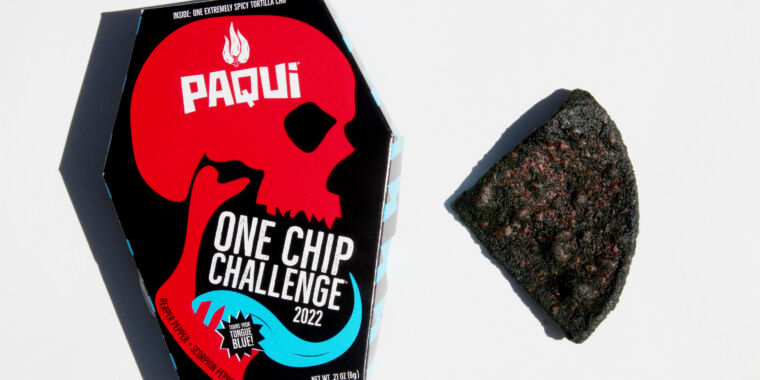Tragic Circumstances: Teen’s Death Linked to Consuming Ultra-Spicy Tortilla Chip
An unfortunate incident involving the untimely death of a Massachusetts teenager has prompted further scrutiny into the potential dangers of consuming extremely spicy foods. The deceased teenager, Harris Wolobah, a healthy 14-year-old student from Worcester, passed away shortly after ingesting an ultra-spicy tortilla chip as part of a viral social media challenge known as the ‘2023 Paqui One Chip Challenge’.
Autopsy Findings: Capsaicin Overdose and Heart Defect
An autopsy report, recently obtained by the Associated Press, shed light on the circumstances surrounding Harris’ sudden death. The examination revealed that the cause of death was cardiopulmonary arrest, attributed to the high concentration of capsaicin present in the spicy chip. Capsaicin, a compound responsible for the fiery heat in peppers, is known to have physiological effects when consumed in excessive amounts.
Furthermore, the autopsy report highlighted an additional contributing factor to Harris’ tragic demise: the presence of a congenital heart defect. Specifically, Harris was found to have an enlarged heart and a myocardial bridging anomaly involving his left anterior descending coronary artery. Myocardial bridging, although typically considered benign, can lead to complications when coupled with external stressors such as capsaicin-induced heart stimulation.
Medical Experts’ Perspectives
Dr. James Udelson, a distinguished cardiologist at Tufts Medical Center, expressed his professional opinion on the potential link between Harris’ consumption of the spicy chip and his subsequent cardiac arrest. Dr. Udelson pointed out that the intense stimulation caused by capsaicin exposure could have instigated abnormal heart muscle activity, leading to a fatal arrhythmia.
Dr. Syed Haider, another esteemed cardiologist at MedStar Washington Hospital Center, further elaborated on the physiological effects of capsaicin on the cardiovascular system. Dr. Haider emphasized how large doses of capsaicin can significantly impact heart function, potentially exacerbating pre-existing conditions or anomalies, such as myocardial bridging.
Risk Factors and Public Health Implications
While Harris’ underlying heart defect may have heightened his susceptibility to the adverse effects of capsaicin ingestion, studies have indicated that even individuals without such anomalies can suffer severe consequences from consuming excessive amounts of the compound. Research has linked ultra-hot peppers to vasoconstriction in cerebral arteries, manifesting as debilitating headaches and neurological symptoms.
In response to this tragic event, the company responsible for manufacturing the lethal tortilla chip, Paqui, swiftly removed the product from circulation. The incident serves as a poignant reminder of the importance of exercising caution when participating in food-related challenges, especially those involving potentially hazardous substances.
Image/Photo credit: source url





